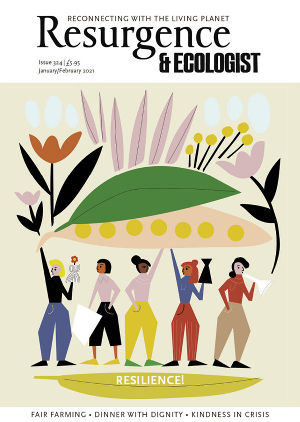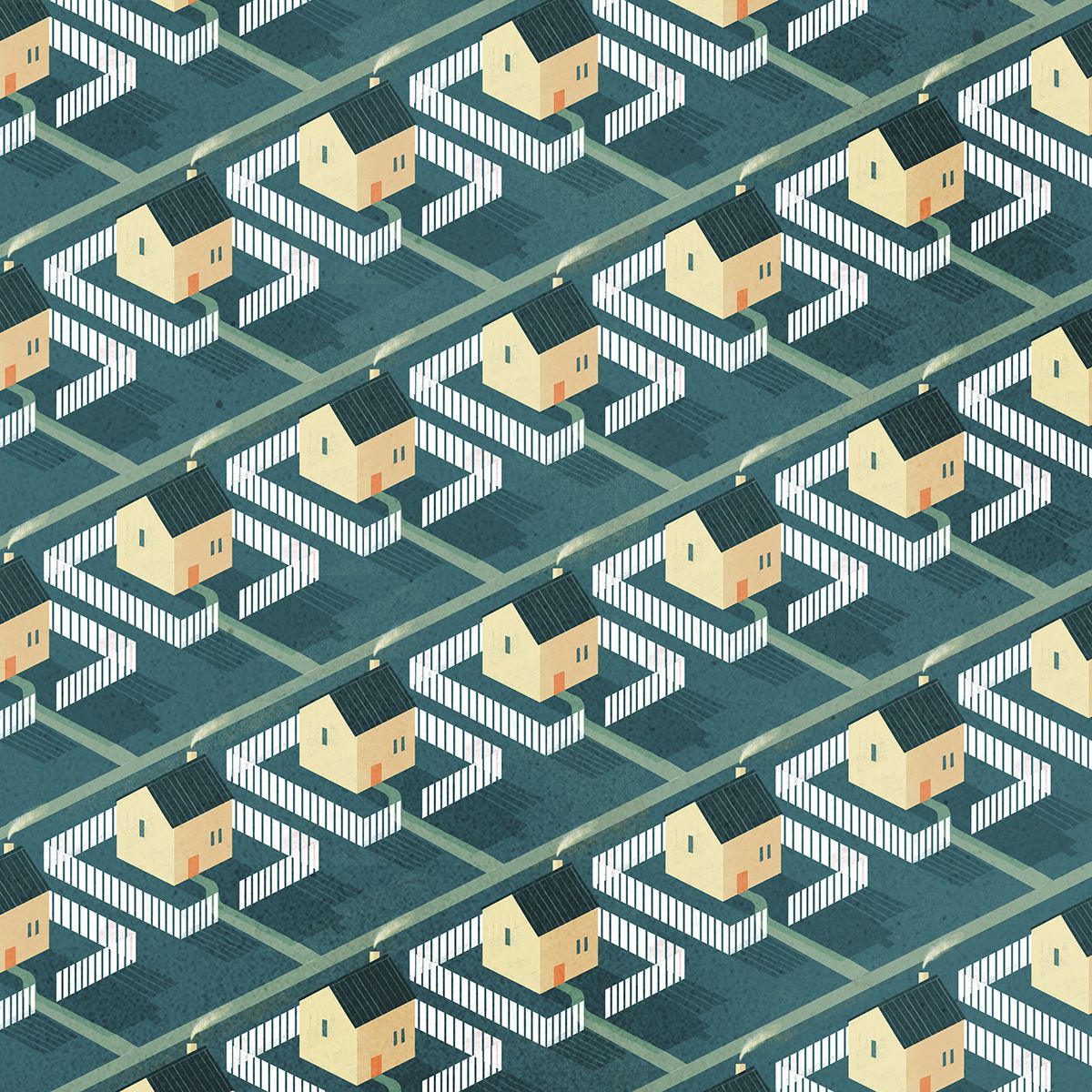To our ancestors, and indeed to a great many people today, land and wild Nature were commonly seen as a gift – or a loan – from God or the gods, to be treated with extreme reverence. In feudal times England’s countryside, as in most of mainland Europe, was ‘open’, not divided into fields by fences and hedges. But increasingly after the 15th century more and more individuals – rich and influential individuals, that is – were given the right to enclose discrete areas, meaning to put fences around them, and to claim the land within literally as their own. The whole process was consolidated by a series of acts of parliament.
The injustice of the enclosures was exacerbated through the 19th century as capitalism got into its stride and land increasingly became a commodity, like everything else. Often it could be bought for very little, especially in foreign lands from people who had no inkling that land could be owned at all, and sold a few years later for a great deal. Sometimes the land increased in value because the legalised owner improved it in the practical, commercial sense (by adding farm buildings, say), but often the price went up without the owner making any effort at all, for example if some third party ran a railway line or built a town nearby. Thus the titular owner grew rich entirely through luck and other people’s efforts. How can that be sensible and just? Worse, if the cost of the land itself increases, then so does the cost of everything subsequently built on it. Farmland in Britain now averages £10,000 an acre, or £25,000 per hectare. Britain needs a new generation of farmers. It is always hard to start a new business – and farms may be particularly difficult – and huge mortgages, meaning huge debts, make it even harder.
The cost of land for building is off the scale, and this hugely inflates the cost of housing. The house that one of my daughters and her husband own in south London is now valued at around £700,000 – which is more than 100 times more than I and my then wife paid for an almost identical house in the late 1960s. House prices were further inflated by Margaret Thatcher’s decision around 1980 to sell off publicly built and owned (‘council’) houses without replacing them like for like, so now there is a chronic shortage of housing. The chronic shortage, some commentators suggest, is a deliberate ploy to keep prices up in the same way and for the same reason that De Beers limits the supply of diamonds. Cost is related to scarcity. This strategy benefits house agents and bankers enormously, but socially it is immensely destructive. People in Britain right now are commonly obliged to spend 30–50% of their income on a place to live, which is intrinsically ridiculous and in many cases leaves them too little to live on. Yet there is nothing inevitable about this. It is not so in all countries and it was not always so here. Sixty years ago, when I was in my teens, families commonly spent only about 11% of their income on housing, and 30% on food. Now it is the other way round. Many people in Britain, though it’s apparently the fifth-largest economy in the world, cannot afford to buy enough food – certainly fresh food. More than a million must now make use of food banks, or so it is estimated. The standard response from government is to urge farmers to produce food even more cheaply by whatever means, and as a result farmers are treated unjustly and thrown out of work, animals are treated harshly, the biosphere is trashed, and – an indirect effect but an important one – science is corrupted, pressed into the service of big business. What’s really needed is a far more egalitarian economy so that no one is too poor to live with dignity and no one is damagingly rich. That, and radical land reform.
Again, we see that everything is linked to everything else – and we cannot put right the wrongs of food and farming just by focusing on farming.
This is an edited extract from The Great Re-think: A 21st-Century Renaissance (Pari Publishing, 2021). Colin will be discussing his book with Resurgence & Ecologist editor Marianne Brown on 17 February at 7pm. www.resurgence.org/bookclub








